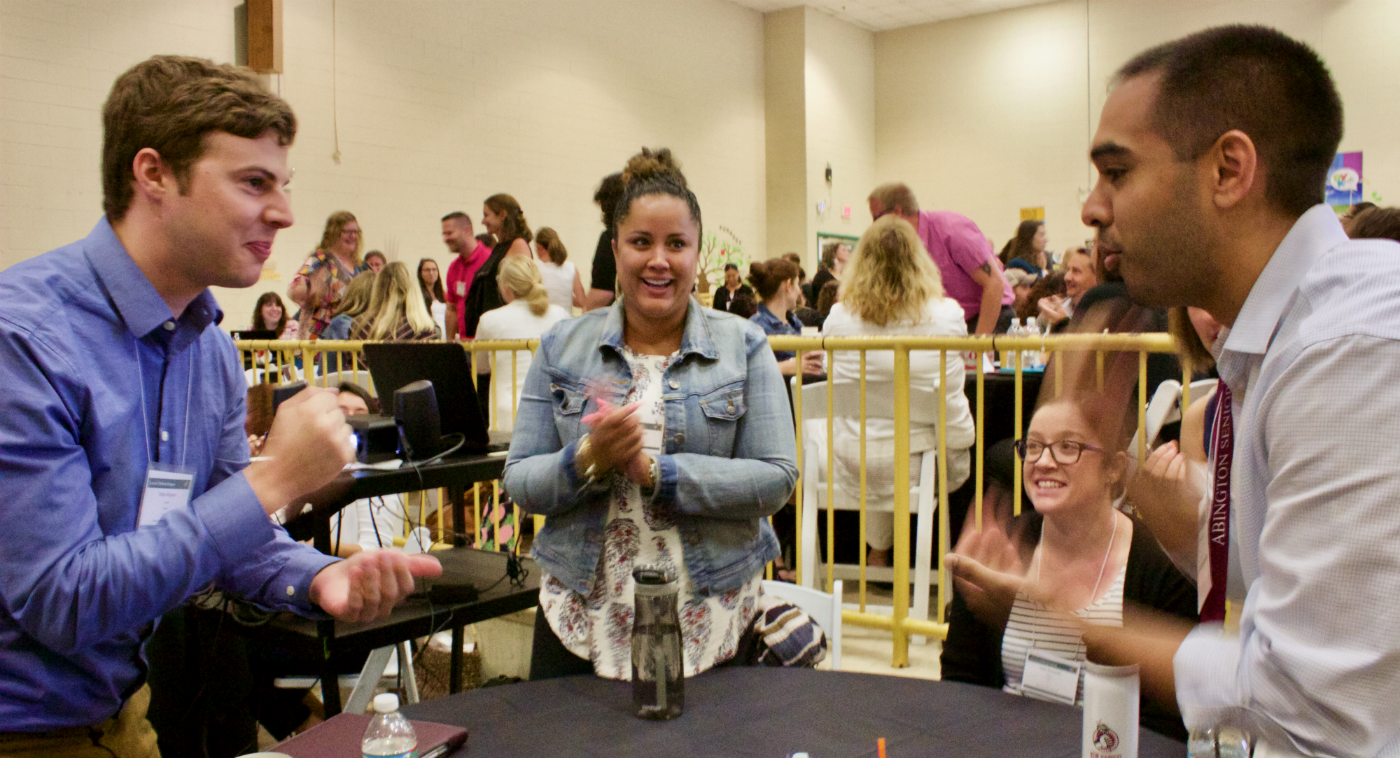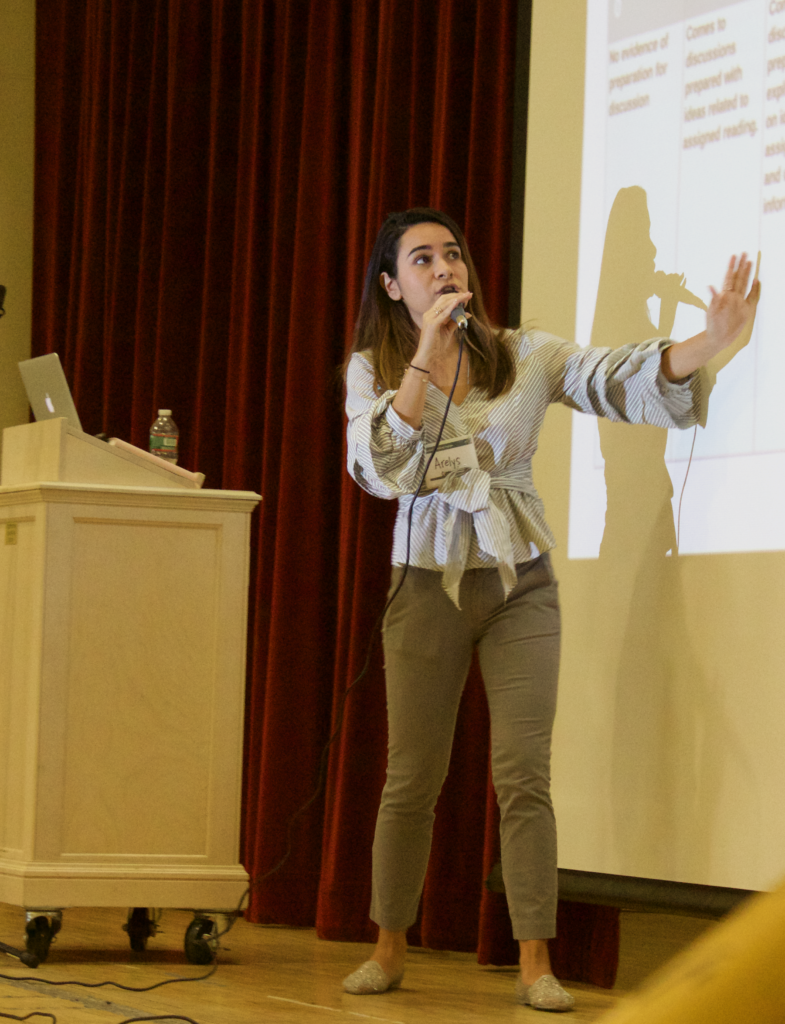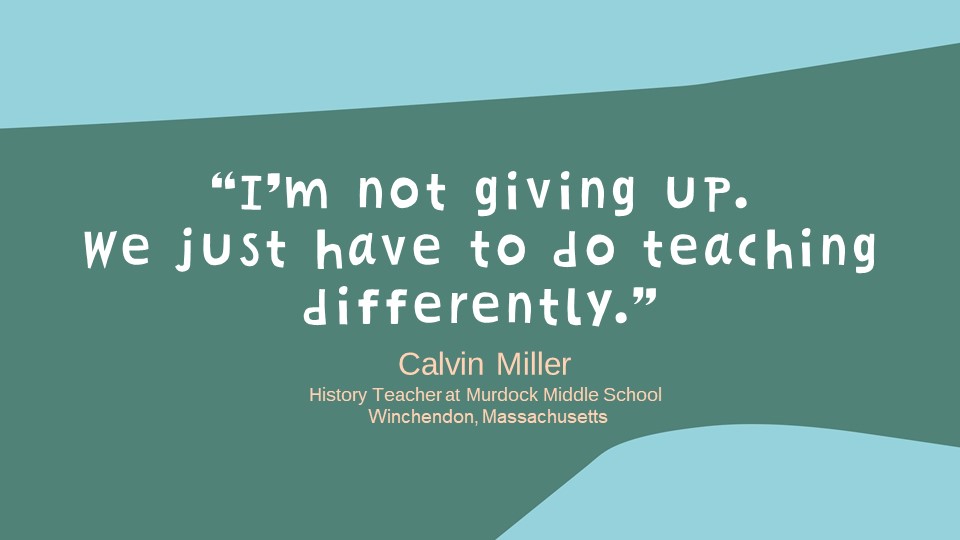
A game of rock, paper, scissors broke down any barriers that might have existed in the room and triggered peals of laughter during the opening minutes of Summit Learning’s New England training in Providence, Rhode Island. Teachers and school leaders from around the region cheered each other on as they circulated around Delsesto Middle School’s three-level cafeteria, looking for competitors who hadn’t yet been covered by paper, crushed by a rock, or snipped by scissors.
“This is setting the tone for what Summit is like — high energy, lots of enthusiasm, all-in participation,” says Arelys Villeda, Summit Learning Program Mentor and Providence training facilitator.
Villeda and other Summit Learning Mentors and Fellows traveled to the Ocean State for the week-long event, part of Summit Learning’s summer training held across 13 cities this month. More than 280 educators convened in Providence, preparing to implement the Summit Learning Program in their middle schools and high schools.
Up For The Challenge
“We’ve been told that doing Summit for the first time is similar to drinking from a fire house — it’s a lot coming at you all at once. But you have support all around you today,” Villeda assured the audience.
That anticipation was palpable as district-level teams formed at tables and discussed the opportunities and challenges that personalized learning presents. Shawn Parkhurst, assistant superintendent of instructional services at Connecticut’s Cheshire Public Schools, has experience shifting to personalized learning in his district.
“I think that the kids who have traditionally struggled in school will more naturally adapt to this new approach, while the high flyers — those who have learned “school” — are the ones who will likely struggle at first,” Parkhurst says. “But those same high-achieving students still hit a wall because they’re not meeting the Cognitive Skills — they’re learning the content, but they’re not learning the problem-solving skills that they need.”
Teachers, Not Hand-Holders

One message resounded across dozens of simultaneous conversations in the room: It’s important to equip students early on with self-direction and the confidence to make decisions both in and out of the classroom.
“My first teaching job was as a third grade teacher, and I’ll never forget, as a new teacher, when one of my students walked up to me with a dried glue stick and said, ‘Ms. Villeda, what should I do with this glue stick?’ He knew where the bucket of new glue sticks was. He could have thrown the dried one away and gotten a new glue stick for his table. But he hadn’t been equipped with the skills to make that decision,” Villeda shared. “Too often you run into the same lack of self-directedness in older kids. It’s about equipping students so that they can make and own their decisions early on.”
Are You In?
Then came the culminating question of the morning in response to Summit’s vision — Are you in? And if you are, why? Summit Learning educators sat around tables and leaned in to hear each other’s answers.
Reasons for buying in were as diverse as the educators who came to the training. Some were attracted to the academic flexibility; others wanted to grow as a teacher; and many felt that change was necessary.
“I’ve been teaching for over 20 years, and I’ve seen a lot come and go. A lot of students struggle, but after 23 years I still believe in what we’re doing,” says Calvin Miller, a history and social studies teacher at Murdock Middle School in Winchendon, Massachusetts. “I’m not giving up, we just have to do teaching differently.”

Miller’s words echo a shared sentiment as to why so many educators showed up in the middle of their summer vacation to participate in Summit’s training: to find support in like-minded educators and to cheer each other on as they prepare to personalize learning for all students.
So, are you in?
Learn more about the Summit Learning approach to teaching and learning, and read about the experiences of other Summit Learning educators who participated in summer training in Little Rock, Arkansas this July.

